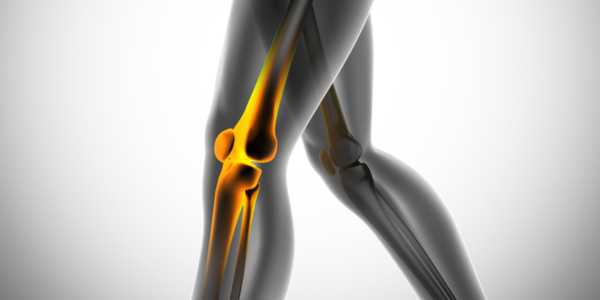
WEIGHT LOSS IMPROVES PAIN AND FUNCTION
More than 30 million adults in the United States have osteoarthritis the most common form of arthritis. Women are more likely than men to develop the disease. Osteoarthritis causes breakdown of the tissue that cushions where bones meet to form a joint. This breakdown allows the bones to rub together, causing pain and swelling. One cause of tissue breakdown is mechanical stress from excess weight on the knees or other joints. Another is the uptick of inflammation-related substances, such as interleukin-6 (IL-6), in people with osteoarthritis.
Several years ago, a team of investigators led by Dr. Stephen P. Messier of Wake Forest University found that 10% weight loss can improve the symptoms of osteoarthritis in obese and overweight older adults. In their randomized controlled clinical trial conducted from 2006 to 2011, weight loss from diet and exercise reduced pain and inflammation and helped adults walk faster and function better. This and other studies provided additional evidence for NIH’s 1998 guidelines recommending 10% weight loss to improve the symptoms of a number of obesity-related conditions, including osteoarthritis.
For their new study, the researchers analyzed the results to determine whether losing 20% or more weight through diet and exercise further reduced symptoms of knee osteoarthritis. The work was funded by NIH’s National Institute of Arthritis and Musculoskeletal and Skin Diseases (NIAMS) and National Institute on Aging (NIA). Results were published online in Arthritis Care & Research on June 18, 2018.
The research team analyzed data collected from 240 overweight and obese older adults with painful osteoarthritis of the knee. All were at least 55 years old and had a sedentary lifestyle. Most were white (85%) and female (72%). During the 18-month diet and exercise study, 74 lost less than 5%, 59 lost 5% to 9.9%, 76 lost 10% to 19.9%%, and 31 lost 20% or more of their body weight.
People who lost 20% or more of their body weight had significantly less inflammation (lower IL-6 levels in blood samples) than people who lost less than 5%. The 20% or more group also reported less pain and could walk farther in a 6-minute test than those who lost less than 5%. Differences in pain and function between the 20% or more group and the 10% to 19.9% were promising as well. However, the overall sample size was too small to say that these effects were not due to chance. Research with a larger sample is needed. The researchers noted that for those with weight loss of 10% or greater, bone mineral density dropped. But it did not drop to a clinically important threshold.
“Substantially greater weight loss, achieved safely, has the added benefit of improved quality of life, and clinically important reductions in pain and improvement in function,” Messier says. “The importance of our study is that a weight loss of 20% or greater—double the previous standard—results in better clinical outcomes and is achievable without surgical or pharmacologic intervention.”
-By Geri Piazza
Article Source
1. National Institutes of Health (NIH), USA.
2. Intentional Weight Loss for Overweight and Obese Knee Osteoarthritis Patients: Is More Better? Messier SP, Resnik AE, Beavers DP, Mihalko SL, Miller GD, Nicklas BJ, DeVita P, Hunter DJ, Lyles MF, Eckstein F, Guermazi A, Loeser RF. Arthritis Care Res (Hoboken). 2018 Jun 18. PMID: 29911741.